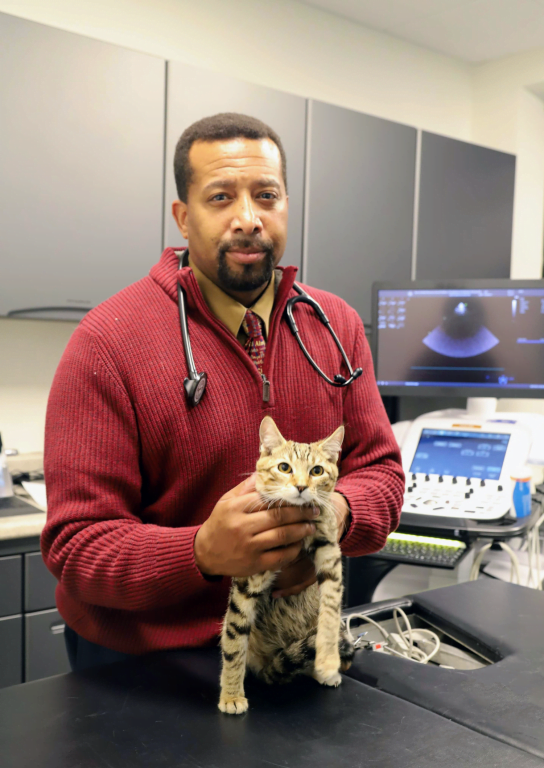Like us, pets can battle heart conditions that are present at birth (congenital) or develop over time (acquired). These diseases affect the heart muscle, heart valves, electrical conduction of the heart, or blood vessels that carry blood from the heart to the rest of the body.
While not all heart problems can be avoided, there are ways you can give your pet the best chance for cardiac health:
- Maintain a healthy weight: For pets and people alike, obesity is a major contributing factor to heart disease, so keeping your pet’s weight under control is essential. One note: You may not even realize your pet is overweight, so get the skinny straight from the veterinary experts at the Association for Pet Obesity Prevention.
- Exercise smarter, not harder: When it comes to workouts, timing and type are key. For young or energetic pets, taking longer, more brisk walks or setting up some agility obstacles in the backyard might be recommended. For older pets, slower daily walks might be just what the veterinarian ordered.
- Take care of teeth: Did you know that heart health is directly tied to dental health? That’s because oral bacterial infections can spread to the heart and cause damage. Regular brushing and dental cleanings can help your pet’s heart stay healthy.
- Breed matters: Some breeds – Boxers, Cavalier King Charles Spaniels, Golden Retrievers, and Persian and Siamese cats among them – have higher instances of hereditary heart defects in their bloodlines, so recognizing whether your pet is inherently at higher risk is important.
- Take action against heartworm: Heartworm disease is serious and often fatal, but also preventable, provided that medication is administered regularly. Believe us, those monthly treatments are worth it.
- Schedule routine care: Regular checkups help your veterinarian establish a strong baseline of wellness so that when something unusual does pop up, it’s easy to recognize as an abnormality.
- Learn the signs: No matter how many routine exams your pet has, your veterinarian doesn’t see your pet every day – you do. Since you’re likely the first to notice early signs of heart disease, it’s important to learn what they are. Symptoms such as cough, shortness of breath, exercise intolerance, or abdominal swelling may indicate a cardiac problem.
Benefits of Working with a Specialist

If your primary care veterinarian detects or suspects a cardiac issue that needs further evaluation, he or she may refer you to Guardian Veterinary Specialists for comprehensive assessment and care by a specialist in pet heart health. Our board-certified veterinary cardiologist, Jonathan Goodwin, DVM, MS, DACVIM (Cardiology), has completed extensive additional academic and clinical training to achieve his specialist credentials.
While it’s difficult to face the diagnosis of a heart condition in a beloved pet, today’s advances in veterinary medicine mean that successful management is possible. And much of the time, it can be managed with proper medications and a healthy lifestyle.
If you have questions about our cardiology services or any of our specialties, please call 914-704-3400. At Guardian Veterinary Specialists, we offer exceptional care. Without exception.

